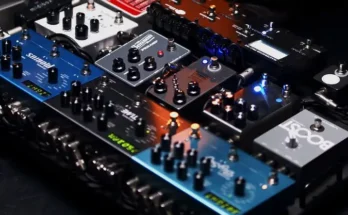Working in a Recording Studio TUTORiAL
P2P | 26 January 2023 | 2.51 GB
Welcome to the Studio Techniques: Working in a Recording Studio!
This class is for anyone who has wanted to work in a recording studio. Especially:
•Producers: If you are making tracks and want to get into a studio to record, this class is for you.
•Aspiring Producers: If you are just getting started with music production, but dream of getting into a studio, this class is for you.
•Musicians: If you are going to be recorded, you should understand how things work so you can help control the results of the recording.
•Songwriters: Improve your compositions by understanding how to make unique and memorable sounds to use in your songs.
•Engineers: If you have hopes of being an audio engineer in a recording studio one day, this is the first step in that journey.
In this class, we start with how to book time in a studio, and what to expect. Then we move on to running a whole session – how to connect everything, use the equipment, and more. I’ll walk you through every step of the process and explain the logic behind every decision I make.
100% Answer Rate! Every single question posted to this class is answered within 24 hours by the instructor.
The goal of this class is for you to be comfortable in the studio the next time (or first time!) you find yourself in the studio.
Topics Covered:
•The Essential Tools of the Recording Studio
•Studio Rules
•Wrapping Cables
•Normalizing The Room
•Equipment in the Live Room
•Equipment in the Control Room
•Acoustics and Sound Diffusion
•Signal Flow in the Studio
•Monitor Speakers
•Preamps
•Choosing Preamps
•Configuring Preamps
•Microphones
•Choosing Microphones
•Dynamic Microphones
•Condenser Microphones
•Ribbon Microphones
•The Patchbay
•Patching A Session
•Setting up a Session
•Routing to Hearback
•Headphone Mixes
•Computer Settings
•Record Settings in the Computer
•Playback and Monitoring
•Talkback
•Software: Using Cakewalk, Garageband, Ableton Live, FL Studio, Logic Pro X, Cubase, Reaper, or any other application.
•Principals of sound engineering
•The art of home recording
•And much, much more!
Please REPORT in Comment Broken Links




